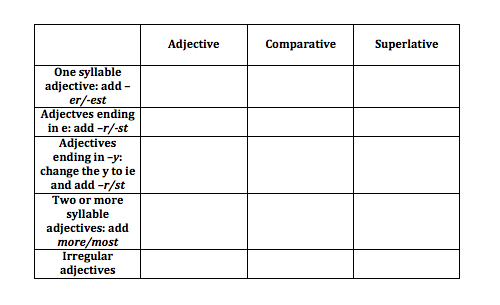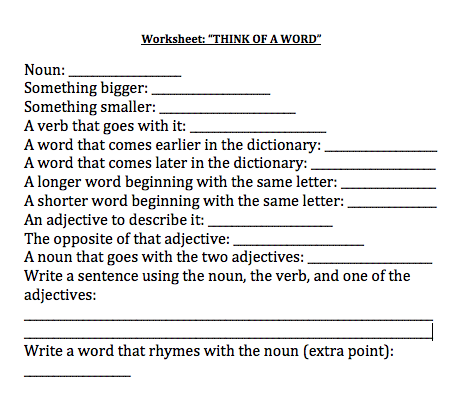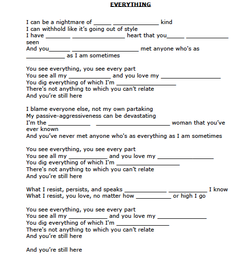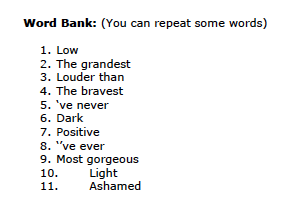1. Review:
In the board, review with your students how to form comparatives and superlatives. You can do it by creating a chart that includes the rules to follow and have in mind when working with comparatives and superlatives.
- Divide the class in small teams ( no more than three people) and turn in the worksheet "think of a word" to each team.
- Then, write a noun on the board and ask students to suggest whatever the worksheet tells them.
- It is a competition, so students need to fill in the worksheet as fast as possible but without spelling mistakes.
- Misspellings will be penalised. The first team to complete all the sentences will win a point. Each team will get a point for each word that is correct. Should a spelling be wrong, no point will be awarded. The teacher will ask students to spell the written word is she/he thinks that it might be misspelled. If two groups write the same word in a sentence, they won't get the point.
- Repeat the exercise with different words a couple of times and add up the points to select a winner.
- Students will listen to the song and complete the gaps.
- If students find the song difficult, the teacher will give them a worksheet that includes the words missing. The teacher will read the words aloud to make easier their identification in the song.
- Repeat as many times as students need.
- Check answers by asking students to read the song aloud.
- Check new vocabulary.
- Identify the adjectives and complete a chart with them like the one at the review stage.
This game can be carried out either writing or speaking:
- Describe an object/animal/person using comparatives until someone guesses what it is
e.g. "It is as yellow as a banana, "it is hotter than fire", "it is as round as a ball" (SUN)
- Wrong guesses should be replied to with another clue comparing the real object with that wrong guess, e.g. “No, this thing isn’t a candle. A candle is colder than it."
- Descriptions should include at least two compatives or superlatives
| lesson_plan_attachments.pdf |







 RSS Feed
RSS Feed
